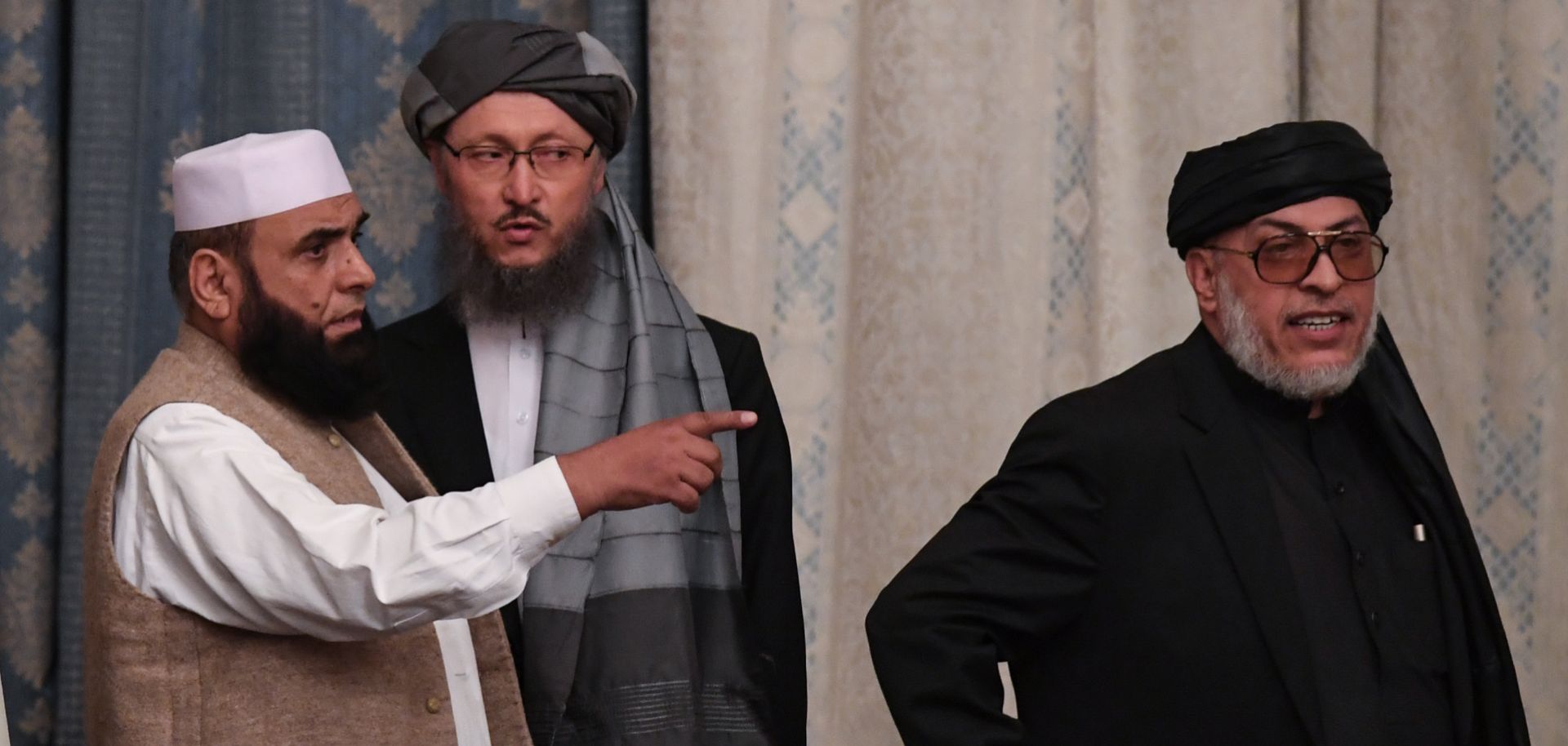ASSESSMENTS
Why Afghanistan's Peace Talks Won't Really Start Until the U.S. Leaves
Jan 18, 2019 | 06:45 GMT

Taliban representatives attend international talks on Afghanistan in Moscow on Nov. 9, 2018. When it comes to Afghanistan, Washington's biggest problem will be figuring out how to balance the Taliban's demand for a complete withdrawal of U.S. and allied forces with Kabul's desire for troops to stay.
(YURI KADOBNOV/AFP/Getty Images)
Highlights
- If peace talks fail to materialize, the primary reason will be the United States' hesitation in acceding to the Taliban's demand that Washington order the complete withdrawal of all NATO and allied forces from Afghanistan.
- Continued U.S. involvement in Afghanistan as part of its broader counterterrorism operations will divert the country's attention from its main strategic priority of focusing on the great power competition with Russia and China.
- The continuing war will hamper investor activity in Afghanistan, harming plans to use the country as a land bridge linking nearby regions.
Proceed to sign up
Register NowAlready have an account?
Sign In